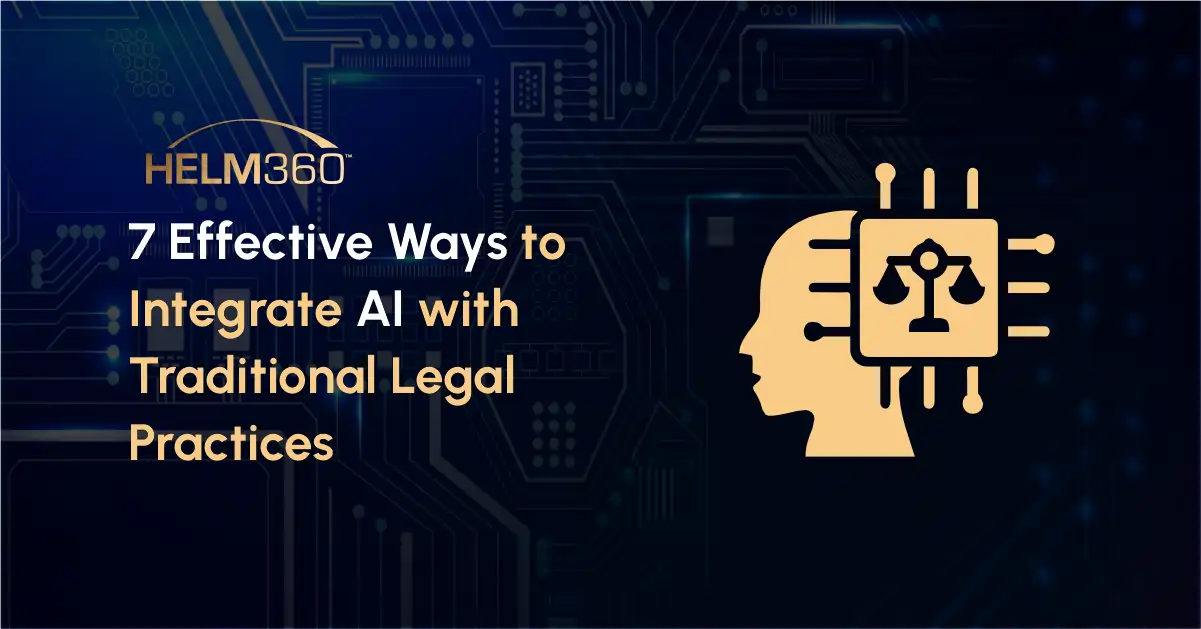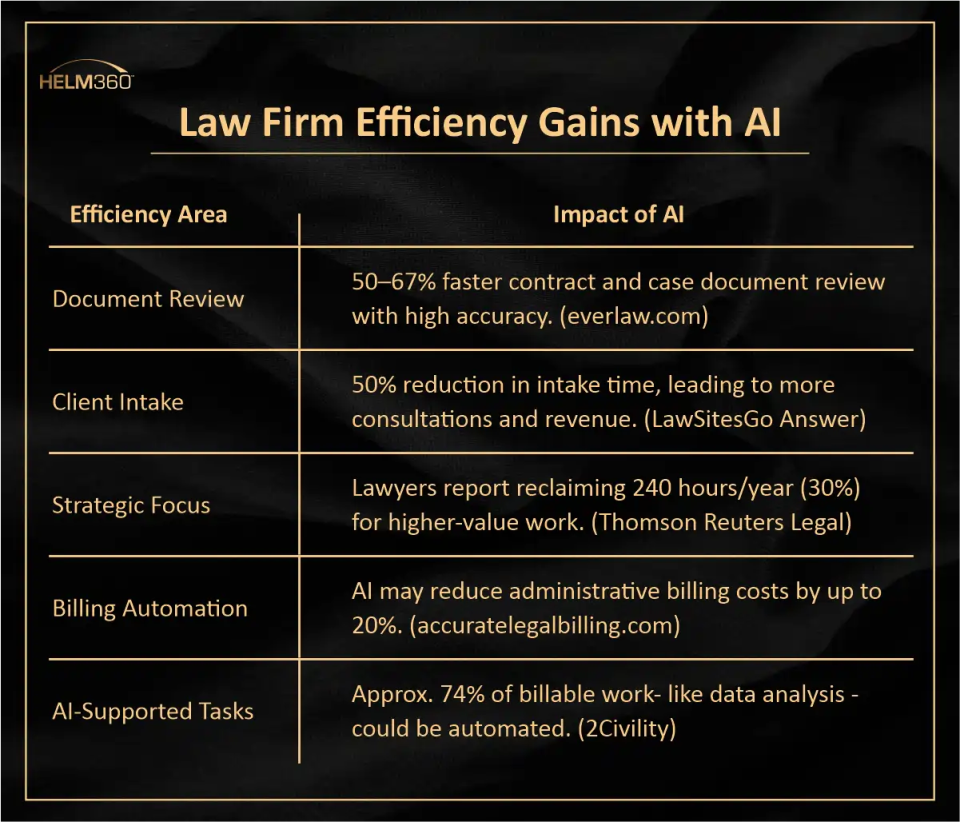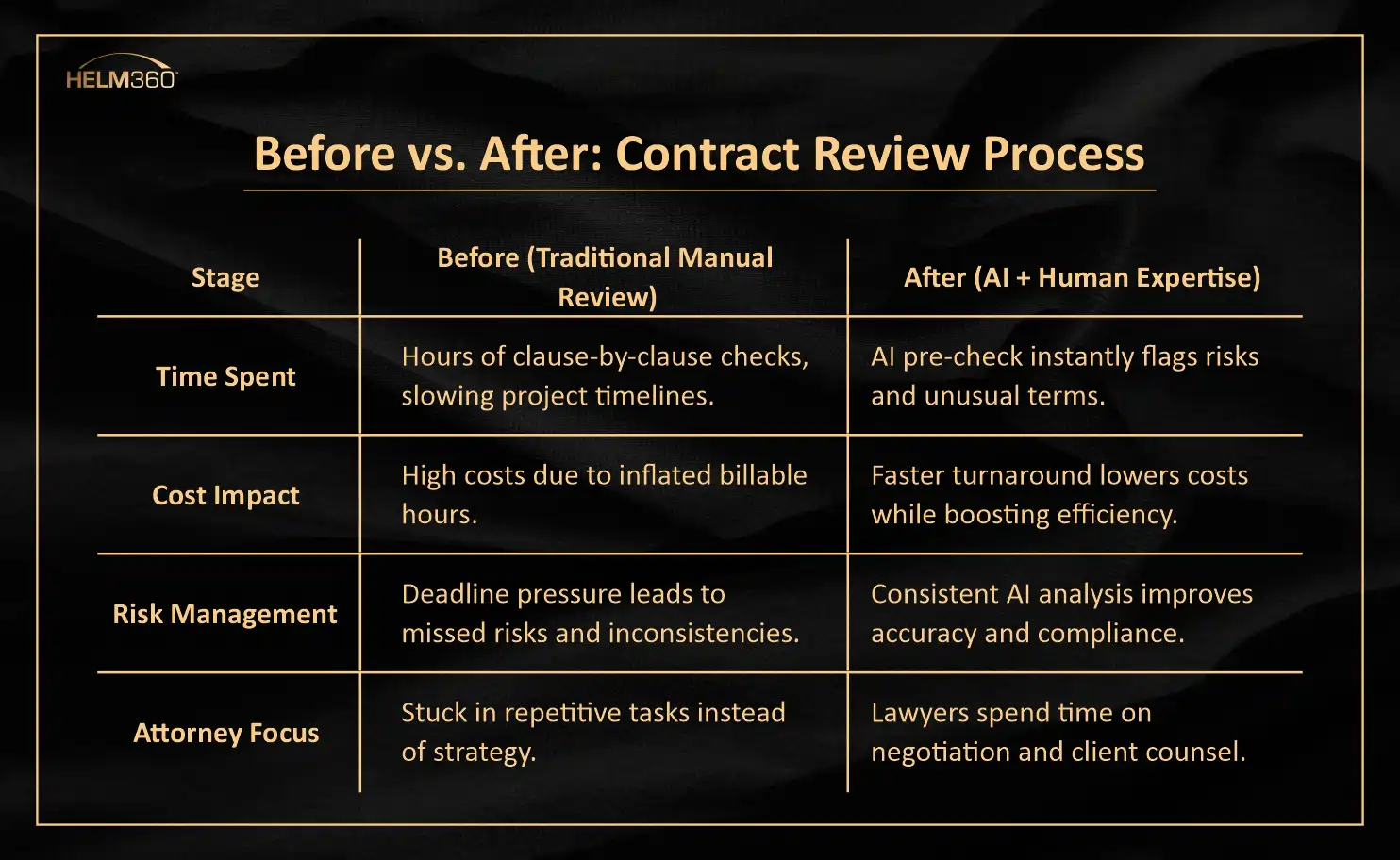7 Effective Ways to Integrate AI with Traditional Legal Practices

The adoption of artificial intelligence (AI) in legal practices is accelerating rapidly. Recent studies reveal that AI use among legal professionals surged from 19% in 2023 to 79% in 2024, reflecting a pivotal shift in how law firms operate. Yet, for many seasoned attorneys, and the legal profession steeped in tradition, the integration of AI raises critical questions: How can AI augment human expertise without compromising the ethical and judgment-driven essence of legal work?
This article outlines seven practical, proven ways to integrate AI effectively into traditional legal practices, preserving core values while driving productivity and client service excellence.
Ways to Integrate AI with Traditional Legal Practices

1. Streamlining Document Review with AI-Enhanced Analysis
Document review remains one of the most time-consuming legal tasks, particularly in litigation and corporate law. AI-powered document review tools can analyze thousands of pages in hours, flagging key elements, categorizing content, and identifying relevant documents for human evaluation. This shift doesn’t replace attorneys but elevates their role, allowing focus on strategic analysis rather than routine sorting.
For instance, tools like Termi by Helm360 provide lawyers with a chat-based interface to quickly access, review, and manage documents from multiple firm systems in plain English, speeding up review workflows while maintaining accuracy and consistency.
A Salesforce study found firms adopting AI report 70% faster turnaround times and triple their client deliverables. A mid-sized firm reduced a document review process from three weeks to three days, gaining consistency and freeing junior attorneys to focus on case strategy.
2. Enhancing Legal Research Accuracy and Efficiency
Traditional legal research often entails lengthy searches through case law databases and legal publications. AI-driven research tools use natural language processing to interpret queries more intuitively, providing contextually relevant results faster.
NexLaw reports efficiency gains of up to 80% in legal research and case preparation with AI tools. For example, an associate working on intellectual property leveraged AI to locate precedents across jurisdictions, uncover emerging trends, and broaden arguments. The tool accelerated early research allowing more time for in-depth analysis and drafting.
Implementation Tip: Use AI as a powerful starting point for research, supplemented by attorney review to verify authority credibility and maintain rigorous standards.
3. Automating Contract Review to Reduce Risk and Cost
Contracts require meticulous review, yet many elements are repetitive. AI can automatically scan contracts for deviations from standard terms, flag risks, and summarize key clauses, creating comprehensive reports for attorney review.
A regional business law firm embraced AI contract tools to maintain thorough reviews while offering competitive pricing. The technology consistently applied analysis standards and reduced errors linked to manual oversight.
Implementation Tip: Develop contract templates and AI review protocols, defining when human judgment should intervene, with continuous AI learning from attorney feedback.

4. Optimizing Practice Management with AI Automation
Administrative tasks, including scheduling, billing, and communications, consume valuable time. AI-driven practice management systems optimize these operations by analyzing workload patterns, automating routine communications, and forecasting resource needs, improving efficiency and client responsiveness.
One firm’s family law practice adopted AI to automate appointment scheduling and provide instant case updates to clients, enhancing service quality while freeing attorneys.
Implementation Tip: Begin automating back-office functions, gradually expanding AI use to client-facing processes while ensuring personal touches remain intact.
5. Transforming Due Diligence with AI-Driven Document Analysis
Due diligence demands exhaustive document review and risk assessment. AI analyzes voluminous documents, detecting patterns, potential liabilities, and compliance issues that may be overlooked manually.
In a corporate acquisition, AI reduced due diligence timelines significantly while attorneys focused on assessing strategic business risks. This synergy of technology and human expertise enabled faster, more accurate transaction evaluations.
Implementation Tip: Standardize due diligence workflows with defined risk categories for AI review, maintaining attorney oversight for all critical decisions.
6. Building Living Knowledge Systems with AI
Law firms possess vast repositories of precedents and insights often inaccessible to staff. AI-powered knowledge management tools index documents, suggest relevant precedents, and identify attorneys with needed expertise, enabling faster case preparation and collaboration.
A large litigation firm reported improved success rates through AI-generated connections between attorneys and relevant prior work, highlighting AI’s role in enhancing, not replacing, human collaboration.
Implementation Tip: Invest in digitizing firm knowledge assets and establish governance structures ensuring ongoing data relevance and quality.
7. Establishing Robust AI Governance and Ethical Oversight
Ethical and legal risks around AI deployment remain paramount. The American Bar Association’s Formal Opinion 512 (2024) emphasizes that existing professional conduct rules govern AI use in legal settings.
An effective AI governance framework includes strict data confidentiality, bias detection mechanisms, thorough accuracy verification, and continuous training to uphold competence. Sarah’s firm, for example, formed a cross-disciplinary committee managing policies, incident responses, and ongoing education, ensuring AI complements ethical legal practice.
Implementation Tip: Create cross-functional AI ethics committees with legal, IT, and risk experts, regularly updating governance as technology evolves.
Conclusion: Augmenting Legal Expertise, Not Replacing It
The rise of AI in law is not about replacing human judgment but empowering attorneys to focus on higher-value strategic work and client advocacy. Firms that blend sophisticated AI tools with traditional legal excellence achieve improved efficiency, accuracy, and client satisfaction.
The future legal landscape belongs to those embracing technology responsibly, preserving professional ethics, and continuously adapting their practices. By following these seven approaches, law firms can transform challenges into competitive advantages and lead the ongoing legal revolution.
The question isn’t if your firm should integrate AI, but how fast you can master it. The opportunity is here, those who embrace change while upholding their values will redefine the practice of law.
Transform Legal Operations with Confidence
Discover how predictive analytics, automation, and data insights can give your firm the competitive edge.


